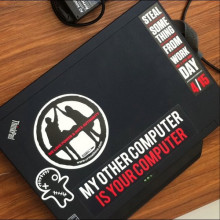Notorious eBay hacker gets 3-year suspended sentence
Vladuz, the Romanian hacker who repeatedly accessed off-limits parts of eBay's website and then publicly taunted company officials over the security lapses, has been handed a suspended three-year sentence, according to news reports.
The Bucharest appeal court issued the sentence on Wednesday to 23-year-old Vlad Duiculescu, AFP reported. He was arrested in Romania in 2008, with help from US Secret Service agents, after eBay said his exploits caused at least $1 million in damage. He was imprisoned for almost two years before being released last year.







































































